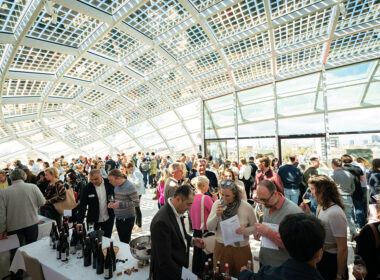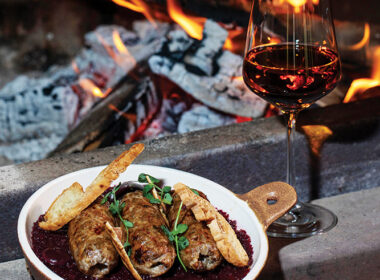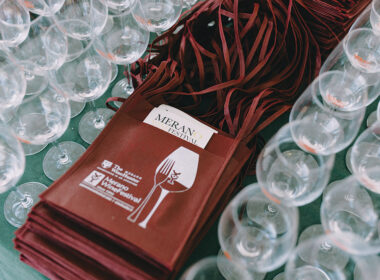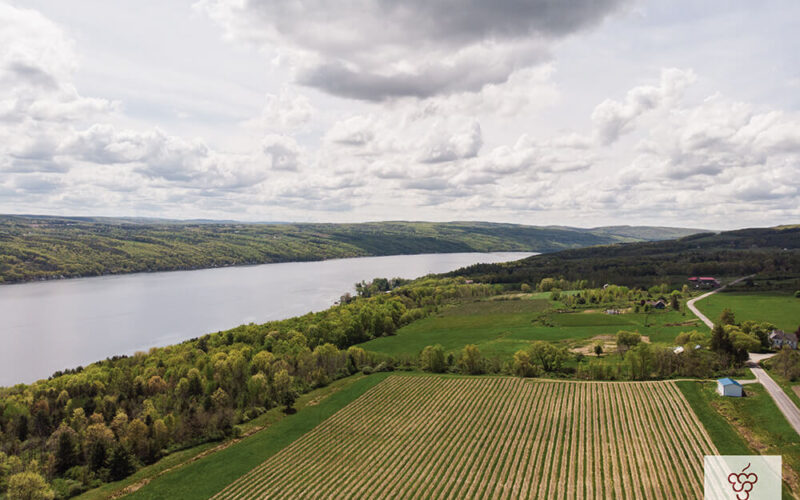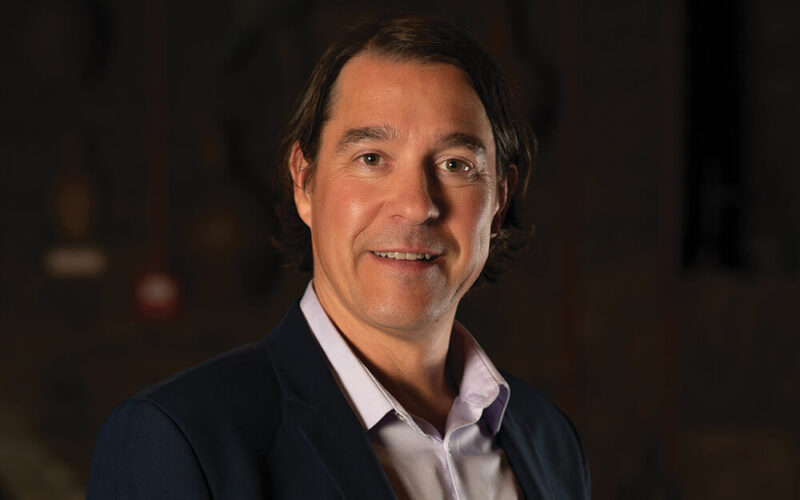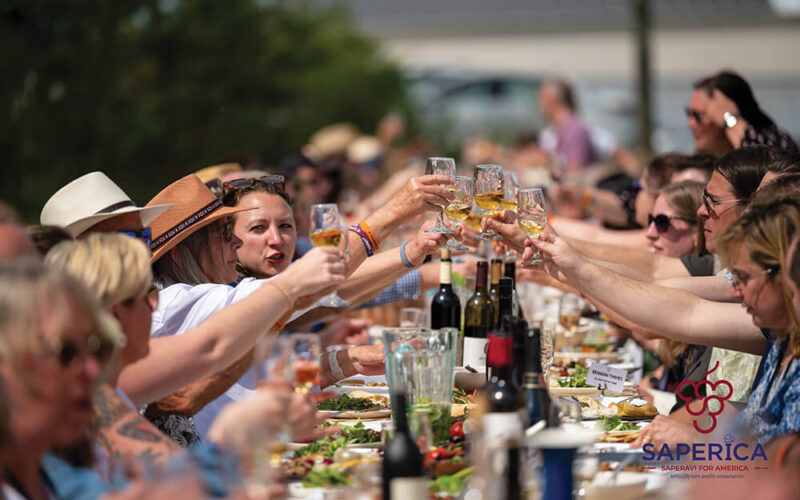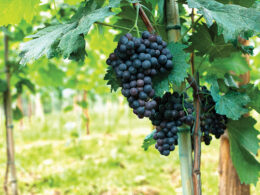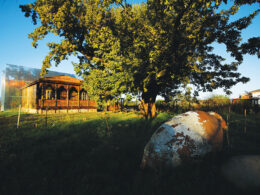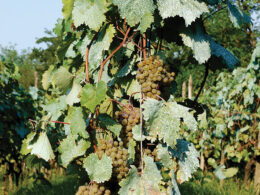Christopher Bates | Master Sommelier, Chef and owner of F.L.X. Hospitality – a family of businesses that includes restaurants, catering, retail shops, wineries and breweries.
In the Finger Lakes region of New York, the Saperavi Festival successfully returned for its second edition this year. This festival serves as a platform to promote Saperavi, other Georgian varieties, Georgian gastronomy, and culture not only within the region but also across the entire state of New York and the USA. Over the past 60 years, Saperavi has thrived in the Finger Lakes and has established itself as a traditional grape variety with great potential to become the region’s leading red wine grape. Its rising popularity in the region paves the way for its future success throughout America. The annual Saperavi festival, organized by Saperica and its founders, Lasha Tsatava and Erica Frey, aims to achieve this goal.
Lasha, Erika, and other like-minded individuals, established the festival last year. In the same year, they devised a comprehensive plan encompassing educational seminars, events, and exchange programs between the Finger Lakes and Georgia, catering to wine and gastronomy enthusiasts as well as professionals within the industry. The program was launched this year in April, a month and a half prior to the second Saperavi Festival. As part of the program, American winemakers, restaurateurs, sommeliers, and marketers had the opportunity to visit Georgia.
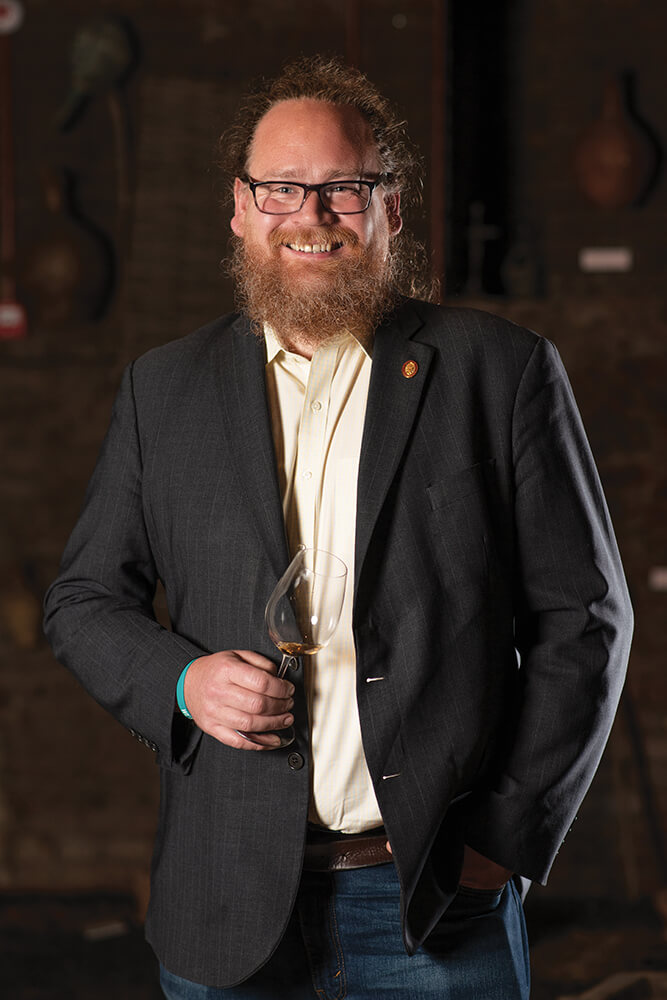
Christopher Bates
Master Sommelier, Chef and owner of F.L.X. Hospitality – a family of businesses that includes restaurants, catering, retail shops, wineries and breweries.
Visiting Georgia was an amazing experience. To see both the world’s oldest wine cultures, and also, one of the newest as it reinvents itself in the wake of occupation, is fascinating, but, not completely unheard of. But, to see it continue to be reborn with a focus on its history, rather than on modern trends, is a delight. Focusing on Georgia’s autochthonous varieties, and millennia old traditions, rather than international varieties, modern winemaking and fruit driven styles is setting Georgia apart. This, alongside the stunning landscapes, the truly genuine hospitality, and the stunning cuisine make Georgia and incredibly special place.
Q: During your visit, did you acquire any valuable information/experience about Georgian grape varieties and/or Georgian hospitality? And how is it likely to affect your own line of business? How useful do you find these experiences, and how likely are you to use some of what you saw in Georgia in your own line of work?
A: Hugely. I think a there are a number of takeaways, starting simply with hospitality. The kindness and generosity are easy to point to, but it goes far beyond that… to the excitement of sharing one’s culture, and one’s history, that made it compelling. There are tons on take aways, from ways of playing with skin contact, to the art of balancing a supra, to a continued obsession with qvevri. The toasted sunflower seed oil, the khachapuri, the similarity of the Georgian cheese to our cheese curds, the Khinkali, and the combinations of walnuts and pretty much everything, though notably, eggplant. All of these takeaways are currently spinning in my mind, and some will certainly appear when the time is right.
Q: Your opinion and evaluation of Georgian wines made by the traditional qvevri method.
A: I think they are interesting. With such immense, tannic, structured wines, I feel as though the wines could use, and would become significantly more interesting with a longer period of elevage in qvevri. So many of the wines we saw were being bottled after 6 months in qvevri, and released shortly thereafter, with hugely unresolved tannins, and long before any aromatic complexity had begun to develop. I can’t help but wonder If an additional 12 months in qvevri would have helped soften that. Additionally, it may actually bring more impact from the clay. I think about the impact clay aging can have on mezcal, and I would like to see a similar impact.
Q: Apart from Saperavi and Rkatsiteli, you have familiarized yourself with and have tasted wines made from rare varieties from various winemaking regions of Georgia. What are your impressions about them, and would you single out any variety or wine style in particular?
A: It’s hard to say given the layout of our tastings. In many cases we tasted only one or two versions of each other grape, and rarely side by side, which made it very hard to understand what was coming from the varietal, and what was coming from the winemaking, aging, and vessel. I will say, I was particularly excited about grapes that held onto more natural acidity. I think that these will make a huge impact on wines made in the amber style, many of which would have benefited from more acidity and lower alcohol in order to balance the tannins.
Q: Within the frameworks of an exchange program, what is more likely to be of interest to you? a representative of a famous winery/winemaker visiting Finger Lakes, or are you more likely to favour a young winemaker?
A: Both have benefits, and both should be done. Sending young winemakers to other regions will broaden the perspective and the palates of your future industry leaders. On the other hand, sending established leaders will certainly spread the knowledge of the Georgian industry to benefit other regions and help us produce better examples of Georgian varietals. Again, I think both have their advantages.

